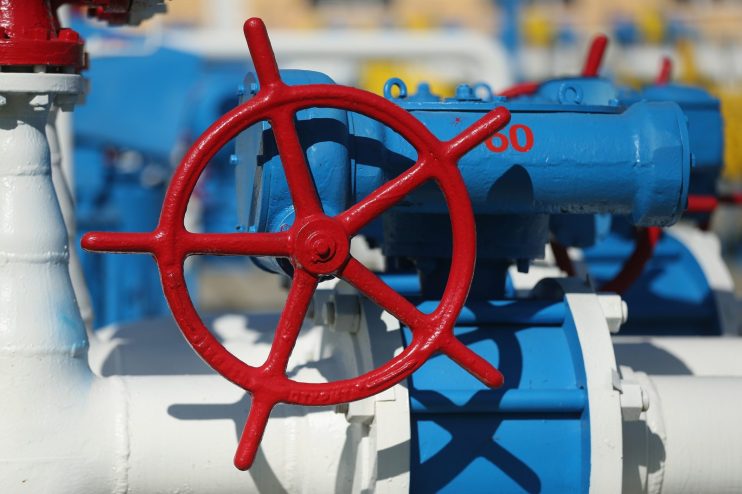EU economy would be hit by Russian supply shortages warns think tank

Even a short term halt to all Russian gas imports would have “profound consequences” for economies across the European Union (EU) and require emergency measures to curb demand, according to the latest published analysis from Bruegel.
The think tank has reported that if Russia cut off all gas amid conflict with Ukraine, the EU would need to both hike imports of liquefied natural gas (LNG) and impose emergency measures to cut demand, such as factory closure, to avoid severe shortages.
Simone Tagliapietra, a senior fellow at Bruegel, argued such developments would cause a severe economic hit to the trading bloc.
He said: “Such a war-scenario would imply difficult and costly decisions for Europe to orderly manage the situation.”
The analysis suggested spare infrastructure capacity could add 17 terawatt hours of weekly imports from Norway, North Africa and liquefied natural gas (LNG) and provide initial relief amid any future supply shortages.
This would nearly replace the levels Europe received from Russia in recent weeks – with the EU relying on Russia for around 40 per cent of its natural gas imports this winter.
However, Bruegel explained that even if the continent could cope in the short-term, those countries may not be able to sustainably boost deliveries, due to limited global liquefaction capacity and suppliers’ existing contracts to send LNG cargoes to Asia.
A jump in LNG demand could also see prices soar, hitting the EU economy and poorer countries bidding to buy gas.
Alongside potential rationing of supplies, the EU might have to revert to less environmentally friendly sources of energy to curb gas use further.
This includes coal-fuelled power production, resulting in more CO2 emissions, while Germany would also have to consider delaying nuclear plant closures: a politically sensitive decision.
Meanwhile, in a scenario with very cold weather plus no Russian gas from February, EU gas storage could be emptied by end-March, cautioned Bruegel .
The report follows escalating tensions between Russia and the West over Ukraine have raised concerns about future gas flows to Europe.
Weeks of talks between both sides have led to no concrete breakthroughs, and there is widespread concern Russia could invade Ukraine.
The Kremlin has positioned over 100,000 troops within close proximity of its borders, opening up the possibility of conflict.
Alongside the growing possibility of war, economic sanctions or potential disruption and delays to gas supplies could have severe consequences for Europe which is currently embroiled in an energy crisis amid soaring wholesale costs.
Currently, the EU relies on Russia to supply around 40 per cent of its natural gas.
The worsening situation has prompted the European Commission and the US to investigate alternative supplies, with the White House reportedly in talks with Qatar and other large liquefied natural gas suppliers to boost the continent’s stocks if Russia invades Ukraine.
The continent has already been suffering from shortages, with Kremlin-backed gas giant Gazprom missing its gas export targets for Europe last year despite rebounding demand, and eastward flows being reported on the Yamal-Europe pipeline for over a month.
The International Energy Agency has previously accused Russia of intentionally throttling supplies to put pressure on the continent in order to deter there from acting in Ukraine and so that Germany would greenlit the controversial Nord Stream 2 pipeline.
Russian president Vladimir Putin has previously dismissed the accusations as “politically motivated blather” and attributed high prices to problems at the pumps, and blamed the European Union for diverting from fossil fuels too quickly with its green transition plans and for not ensuring sufficient storage.
Currently, Europe’s stocks are flagging at around 43 per cent of all available capacity, with supplies replenished over Christmas from even lower levels by a flotilla of US tankers.
This staved off blackouts across developed economies, however Moldova and Kosovo have both suffered power outages in recent weeks.
Rising gas prices in recent months amid lower-than-expected supplies Russian supply have already hiked Europeans’ household bills, and forced some gas-reliant industries to curb production.
Bruegel’s gloomy report follows equally grim tidings from US investment bank Stifel, which warned that the UK could suffer a four-fold increase in wholesale prices if Russia cuts off exports from the continent.